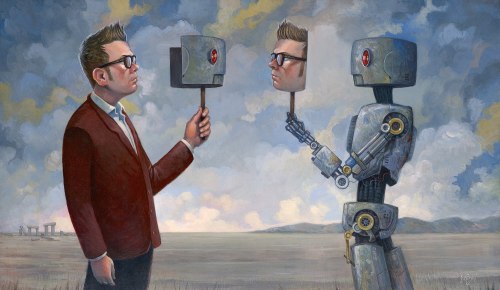“People don’t take smoke breaks anymore — they take Facebook breaks.” Now, there’s a beauty that I heard this afternoon at the IBM Connect event here in Orlando.
You can blame it on the digital natives — the young ones who feed their activity streams to network and create their digital personas. For them, it’s not so unusual. It actually makes a lot of sense considering how data is changing who we are and what we represent.
Welcome to the second-person workplace, where a person is becoming a double of themselves. They live and work, and while they do their online persona is engaging, too. And we take breaks to feed that double identity.
Mark Fidelman of harmon.ie and a writer for Forbes moderated the discussion during which this topic of the new smoke break surfaced. The talk focused on the need for people to engage in social tech. It’s universal here at the conference — everything about this event is about getting people to use blogs, Twitter — you name it.
But what they do not talk about is why we are developing this digital persona that we will increasingly use as a double worker to define our behaviors.
I can’t take credit for this insight. Chris Dancy works in the office of the CTO at BMC Software. He discussed this in a phone interview today. He has cultivated this viewpoint and has distilled it into a presentation that has three core principles:
- Reputation – Algorithmic scoring based on work narration, collaboration and consumption
- Knowledge Locker – The cloud systems that collect and save data about your life, that you save through automation, manually or through trusted networks
- Quantified Self – The measurements of ones own work, life, surroundings and health.
And the presentation:
Now read his post on how data is getting connected and will soon tell us when to leave the house, who to have dinner with and where it would be a good idea to eat based upon the diet learned from the data streamed from their FitBit.
I hope the people here at IBM Connect can think beyond tweeting and better understand the deeper meaning of data and its role in our lives. Maybe then we won’t find it so surprising that people actually would take a few minutes to go outside and get on Facebook.
